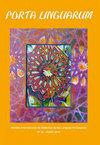创造力和英语的所有权:与非母语人士的创意写作教学和评估
IF 2.1
4区 教育学
Q3 EDUCATION & EDUCATIONAL RESEARCH
引用次数: 9
摘要
本文从几个方面探讨了英语语言所有权与非母语作家创作英语之间的关系。它讨论了新手创造性作家可能努力控制他们的英语文本生产的方法,没有传统的“学术写作”可能提供和强加的脚手架和结构。文章还讨论了学生控制和拥有英语语言的尝试与学术评估学生写作的方式之间的关系;无论是创造力还是控制力本文章由计算机程序翻译,如有差异,请以英文原文为准。
Creativity and the Ownership of English: the Teaching and Assessment of Creative Writing with Non-native Speakers
This article examines some aspects of the relationship between the ownership
of English language and its production by non-native speaker creative writers.
It discusses ways in which novice creative writers may strive to control their production
of text in English, without the scaffolding and structures that conventional �academic
writing� may both offer and impose. The article also discusses the relationship between
the students attempts to control and own the English language, and the ways in which
the academic assesses their writing; both in terms of their creativity and their control
求助全文
通过发布文献求助,成功后即可免费获取论文全文。
去求助
来源期刊

Porta Linguarum
Social Sciences-Education
CiteScore
1.70
自引率
16.70%
发文量
51
期刊介绍:
PORTA LINGUARUM is an international and interuniversity journal that specialises in foreign language didactics. Its aims to publish empirical studies, critical revisions, and theoretical models that relate to the many factors that influence the FL teaching and learning:
- The social and school context: the family’s social and cultural influence as well as the student’s mother language and its influence on the L2 learning process, etc.
- The students: their personal characteristics (age, gender, personality traits, etc.) as well as their attitudes, motivation, cognitive styles, etc.
- The FL teacher: the teacher’s mental representations, attitudes, motivation, individual characteristics, teaching methods, etc.
- Learning conditions and the learning process, variables that influence the teaching and learning processes in the classroom: efficiency of teaching strategies, teaching methods and techniques, second language acquisition processes, students and teachers interaction, effect of teaching resources and materials, etc.
- Learning outcomes: evaluation of procedures as well as the evaluation of the students’ communicative competence at different academic levels, etc.
 求助内容:
求助内容: 应助结果提醒方式:
应助结果提醒方式:


